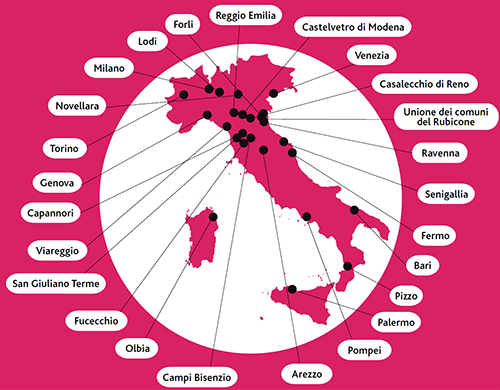Arezzo, Italy - Intercultural City

Arezzo is a city in eastern Tuscany with Etruscan origins, positioned at the intersection of four valleys, which has a liveableness of a city of medium size. The "integration" is an important goal for the local policy, recognizing the value of diversity and building shared well-being with the participation of all citizens, independently of their nationalities. Arezzo is a friendly city, it is chosen by many foreigners who decide to reunite with their family and to settle in this area. The immigrant population is therefore normally stable, drawn to a city where until a few years ago it wasn’t hard to find a job and satisfied own basic needs. Today the crisis in the gold and manufacturing sector, that are vital for the local economy, not help the stability of foreign people; the city has to reinvent a different economic development on other sectors such as tourism and services. For this reason it’s necessary to provide important services such as Italian language courses to improve personal skills, which will be spent in various sectors for facilitating the access to employment.

Alessandro GHINELLI





